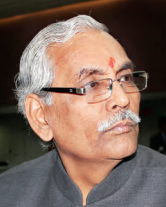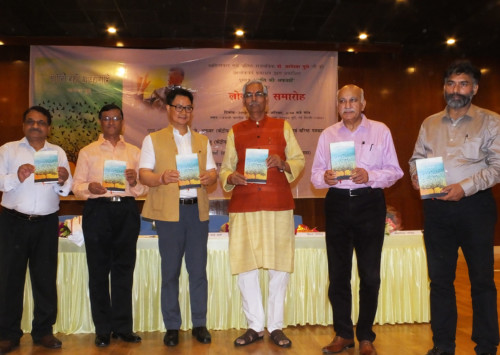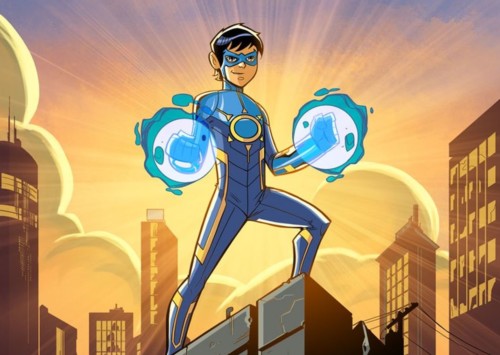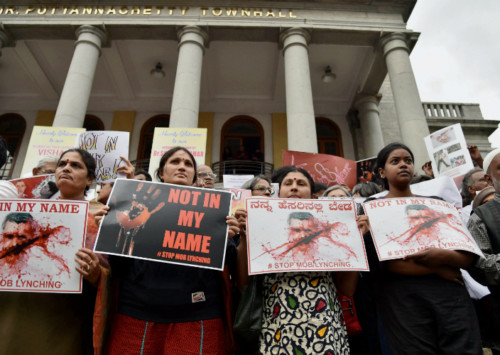BALDEO BHAI SHARMA
India & You
January-February 2018
In an era of digital explosion, when readers are switching to devices from hard copies to fill their reading appetite, the National Book Trust (NBT) also seems to be sauntering towards the e-way. India & You speaks to Baldeo Bhai Sharma, chairman, NBT, to know about the organisation’s stance on the subject.
Established by the government of India in the year 1957, the National Book Trust (NBT), is a body under the department of higher education, ministry of human resource development. With its objectives to produce and encourage the production of literature in languages including English, Hindi and other Indian regional languages, the trust often participates in book fairs and seminars to communicate and establish relations with the right people.
India & You interacted with Baldeo Bhai Sharma, chairman of NBT at PubliCon 2017 – a literary event held in the Indian capital, New Delhi. Previously an editor with renowned Hindi dailies, Sharma took chair at the trust in 2015. Below are excerpts from the exclusive interview with him.
How is the NBT planning to adapt to the needs of a growing digital society?
We are working on online books. Developing an e-books’ bank is one of our major projects. It already has nearly 150 books. We are also selling books online and working on audio books for the blind, so that their visual disability does not come in the way of their access to books.
What are the plans for 2018 in regards to digitisation?
On the completion of 60 years of the NBT, we have put forward the cause of going digital as an important one, and are digitising more and more books.
What is the impact of digitisation and how soon do you think it will spread?
The use of technology also depends on how efficient the resources are that support it. India is a country of more than 600,000 villages, which are all with poor connectivity. Not just this, even in many parts of New Delhi, the national capital, efficient connectivity still remains an issue. It is going to take a long time to resolve these technical problems, and they can’t be ignored as technology is the need of the hour.
Yes, people are now increasingly reading books on laptops, mobile phones and devices like Kindle, but resources such as the internet connectivity need to be developed more in order for technology to be used to the utmost or even spread.
What impact do you think digitisation will have on the physical access of books?
I don’t think digital books are a competition to published books. Every third person reads at least one printed book per year. So there is no competition in digital and printed books. They will in fact survive simultaneously. There is a big chunk of population in this world, which still considers reading printed books over e-books.
It is the new generation that prefers e-book though. However, it is not easy to read e-books in one go. Reading a 400- page book, for example, can be a task on laptops or Kindle, but that is not the case for printed copies. Moreover for reading printed copies, one does not have to be dependent on connectivity or the battery in a device.
What is the NBT doing to translate the works written in Indian languages and taking it on a global platform?
Recently, the NBT together with the country’s foreign ministry has taken up a project with a Chinese publishing house. Under the project, we will translate 25 Chinese classics into Hindi and 25 Hindi classics into Chinese.
Additionally, the NBT is also promoting international translation schemes, for which it also gives out subsidies. We believe that translations work as a bridge to other languages, and it is the way through which we can take works from one language to another and thus to various countries.













